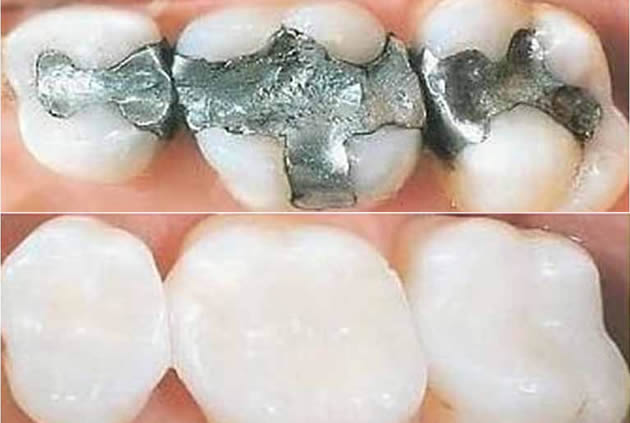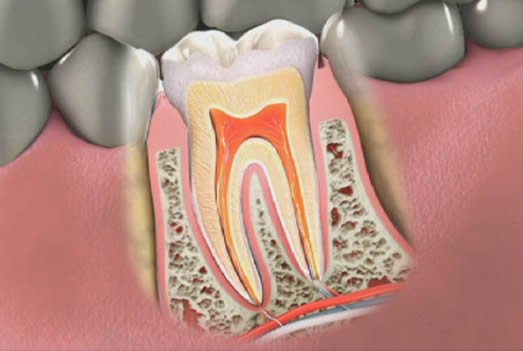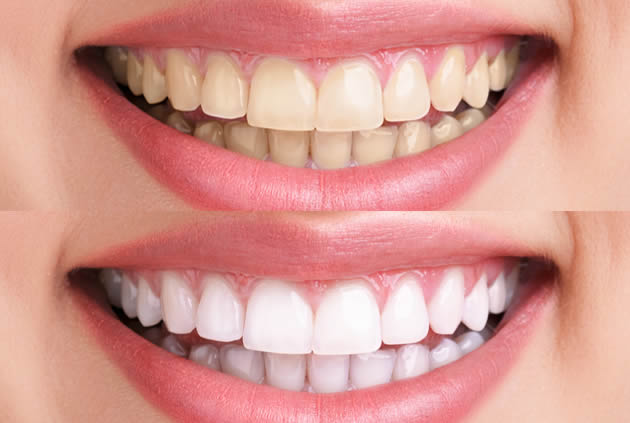
If root canal treatment has been recommended for you, you’re probably a little nervous. Maybe you’re a LOT nervous, but if you’re thinking about putting off your treatment, don’t. If you need root canal therapy, the underlying conditions that necessitate it will not go away left untreated. In fact, they’ll just get worse and worse over time, causing you more pain and discomfort and potentially leading to more serious complications.
If you don’t treat the infection in your tooth, it will spread. Beginning at your tooth’s roots, it will travel to your jawbone and eventually to your healthy teeth. Your entire jawbone can be put at risk. By treating your infection promptly with root canal therapy, your mouth can be free of infection and you will begin the process of healing.
Serious diseases like heart disease and diabetes have been directly linked to gum disease. During pregnancy, many problems including low birth weight and premature birth can occur as a direct result of infection and bacteria in the mouth. Several types of cancers have all been shown to have a link to poor overall oral health. The mouth is truly the pathway for everything that goes into the body, and if it’s providing a steady stream of bacteria and infection to be spread throughout your body, it’s extremely problematic.
Don’t worry about pain following your procedure. Root canal therapies are meant to relieve pain, not cause it. You’ll be surprised how much better you’ll feel after your mouth is infection-free.
If you ignore your infected tooth for long enough, it may either fall out on its own or need to be extracted. Missing teeth come with a long list of oral issues, including difficulties with bite alignment and speech only corrected with some kind of dental restoration.
Don’t wait to have your root canal treatment. Don’t open yourself up to the myriad of consequences that could result from postponing treatment.
If you live in the Baltimore area contact us today

An aching tooth can make your life miserable. Pain, difficulty eating, inability to sleep, headaches and earaches are some of the problems that often accompany a toothache. If you have any of these symptoms and suspect a damaged tooth, a trip to the dentist is in order to see if root canal treatment might be needed.
What is root canal therapy? Although it has gotten a bad reputation over the years, it is the best way to save your tooth once infection has set in. The cause for the problem can vary, including deep tooth decay, a faulty crown, trauma, or repeated dental procedures. Once the inside of the tooth called the pulp becomes damaged, root canal treatment is the ideal solution. If you don’t seek treatment, severe pain and possible tooth loss may be in your future.
During root canal therapy, the damaged tooth pulp is carefully removed so that the interior of the tooth can be thoroughly cleaned and disinfected. Then the tooth is filled and sealed using a special material. Finally, the tooth is fully restored with a crown or filling to offer protection from future damage.
What are the positive outcomes of root canal treatment? First, it gives you back the complete function and natural appearance of your real tooth. You avoid getting a hole in your smile or needing a procedure like a dental implant. Root canal treatment restores your normal sensation and biting force, providing for efficient and painless chewing. This treatment also protects other teeth from receiving excessive wear, since your real tooth remains in place and able to take its fair share of tooth wear. Of course, treatment will also relieve the pain and other symptoms associated with your damaged tooth.
Root canal treatment is usually quite simple when performed by a qualified dental professional. Modern techniques allow the process to be as comfortable as just getting a normal filling. The procedure may be completed in only a couple of appointments and the end result will be a long-lasting, healthy tooth.
If you need a dentist in Baltimore contact us today

Excellent dental care protects not only your oral health but also your general health. You may think brushing and flossing are enough to keep you safe from decay and disease, but routine care and examinations by a good general dentist are also an important and necessary part of taking care of your oral and general health.
A general dentist plays a vital role in identifying and treating minor problems before they become major ones. The primary focus of a general dentist is preventative care. Several essential services provided by a general dentist include:
Detecting and treating potential problems early may mean the difference between losing and saving an infected tooth. Caught early, gingivitis or periodontitis can be stopped and treated before becoming more serious problems.
A general dentist can treat your entire family, from the youngest child to the more senior members. It is your general dentist’s responsibility to oversee the diagnosis, treatment and overall coordination of all your dental health needs. Should you require specialized oral care, your general dentist can work with specialty dentists to ensure you receive the best possible care.
To guarantee the longevity of your oral health, look to a qualified general dentist for excellent dental care. A regular schedule of exams and cleanings by your general dentist
We look forward to seeing you in our Baltimore dental office

Having tooth pain or problems can be one of the most uncomfortable experiences possible. It is hard to ignore because it makes your whole quality of life worse. When infection or decay reaches the inner parts of your tooth, it can cause many miserable symptoms. Often the key is getting root canal treatment to save your tooth and alleviate your symptoms. Here are some warning signs that indicate you might need this type of treatment.
Severe pain:
Although not always present, severe pain sometimes occurs with a tooth that needs root canal therapy. It may be sharp, intense pain or a dull ache that won’t subside. If you experience tooth pain that is severe or lasts for several days, see your dentist for an evaluation. If root canal treatment is necessary, any pain you may have will likely disappear after a successful procedure.
Sensitivity to hot or cold:
Discomfort when consuming hot or cold items is another sign of a problem. Mild sensitivity is usually not a big deal, but actual pain when your tooth hits these temperatures may mean the tooth is in an advanced stage of trouble.
Gum tenderness or inflammation:
Swelling or tenderness is often associated with infection, although it doesn’t always mean infection is present. Your dentist can determine the seriousness of the issues and whether root canal treatment is advised. Watch for tenderness, swelling, or even a lump in the affected area.
Darkened tooth:
Discoloration is a sign that the nerves of a tooth are damaged. The tooth may become gray, black or dark yellow. Tooth discoloration is also related to trauma, damaged fillings or severe decay, so visiting your dentist for a checkup is recommended.
Gum boils:
If lesions similar to a pimple form in the gum tissues, it is called a gum boil. It is usually an accumulation of pus, which can be linked to infection. The boil may be larger or smaller at certain times, depending on the activity of the infection in your mouth. It will feel tender and can cause swelling in the area, and you may notice a bad taste in your mouth.
If you have symptoms such as these, see your dentist to learn if root canal treatment is the solution.
We look forward to seeing you in our Baltimore dental office

A toothache can make everything seem terrible. Your mouth hurts, your head aches, you can’t eat what you want, you can’t sleep comfortably – in general, you feel awful! Your tooth pain may be a result of decay that has caused an infection in your tooth pulp, calling for root canal therapy.
What does that mean exactly? When the inside of your tooth or the pulp becomes infected, it causes the tooth to deteriorate and cause pain and sensitivity. Action is needed to eliminate the infection and protect the tooth from worse damage. Root canal treatment is the best solution because the damaged pulp is removed and the inside of the tooth is thoroughly cleaned and restored.
To accomplish a root canal procedure, your dentist will drill a small hole in your tooth to access the pulp and expertly remove it. Once the area is cleaned and disinfected, your tooth will be filled with a special material and sealed for protection. Finally, a dental crown is usually placed on top to complete the root canal procedure. You are left with a fully repaired and protected tooth.
What benefits does root canal treatment provide?
- Pain is eliminated with the repair of your tooth and removal of infection.
- Your ability to chew and bite foods will return to normal.
- You will no longer experience tooth sensitivity to hot or cold items.
- The damaged tooth will be restored so that it looks natural in your smile.
- Your other teeth won’t have excessive wear to make up for the damaged tooth.
With the advances in dentistry making root canal therapy faster and less painful, your procedure may be completed in as little as one trip to the dentist. Once the process is complete, you can expect your fully restored tooth to last as long as the rest of your teeth.
If you live in the Baltimore area contact us today

It’s easy to put off a trip to the dentist if you’re not experiencing any pain or noticeable issues. Maybe it’s inconvenient in your busy schedule, maybe you don’t want to spend the money, or maybe you experience anxiety about dental visits. None of these are good enough reasons to forego proper dental care so that you ensure a healthy mouth and attractive smile.
Having regular checkups with your general dentist is important for a variety of reasons. Probably the most beneficial reason is to catch problems early, before they have time to become serious and negatively impact your oral health. Cavities and gum disease are both examples of issues that can wreak havoc in your mouth if left untreated, but if handled quickly they may disappear with as little as a fluoride treatment or change in your hygiene routine. Avoiding treatments like fillings, crowns, or root canals – not to mention the associated costs to your wallet and your schedule – are great reasons to see your dentist every six months!
Another benefit of regular checkups is a brighter, more beautiful smile. Even the best dental hygiene at home can’t reach every bit of plaque or tartar that accumulates on your teeth. Professional cleanings eliminate buildup to give you a more appealing smile, as well as removing harmful and stinky bacteria from your mouth.
Your overall health also reaps the rewards of consistent dental care. Oral problems can impact your general health through things like introducing dangerous bacteria into your body that can spread and cause various health risks. Also, your dentist may notice signs of health issues you might not realize, such as cancers or diseases or nutritional deficiencies.
Make your smile a priority and visit your general dentist regularly. Don’t let excuses get in the way of receiving the rewards dentistry has to offer.
If you live in the Baltimore area contact us today
















